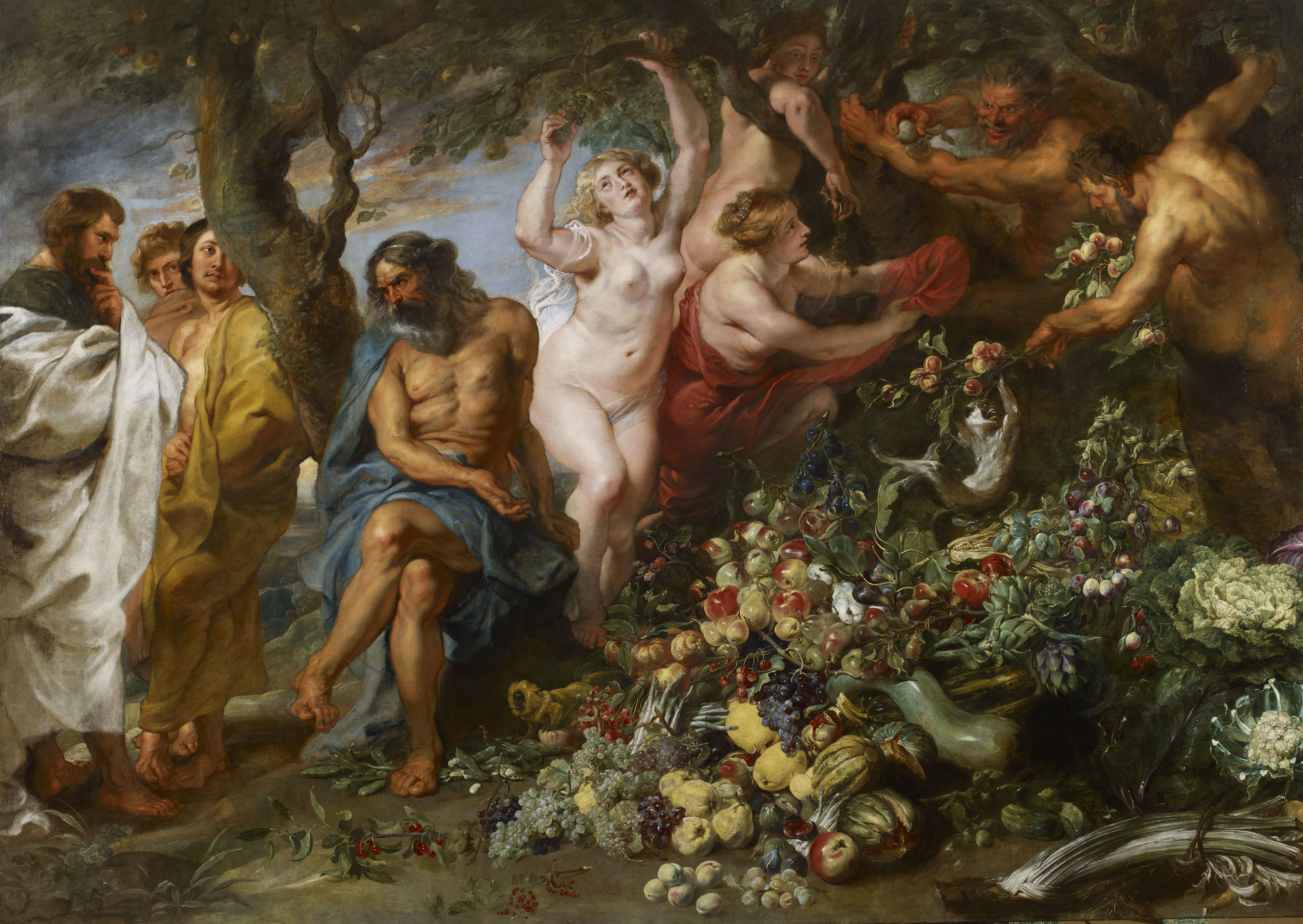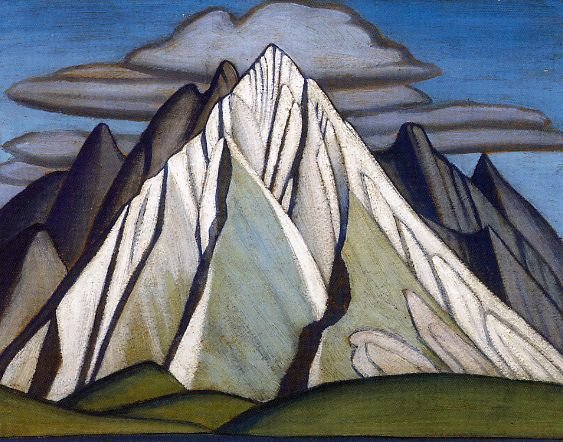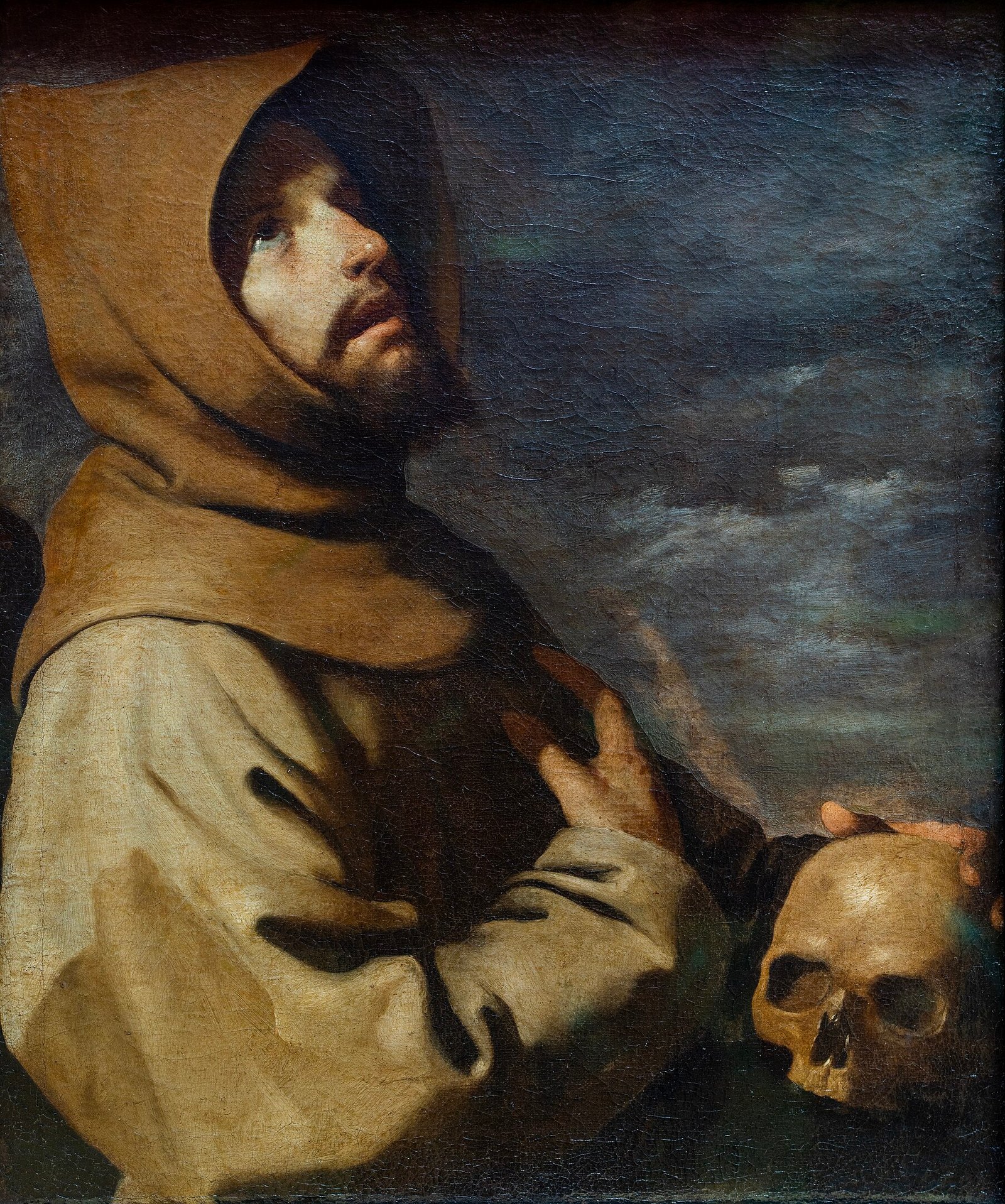(28 June 1577 – 30 May 1640)
Pythagoras Advocating Vegetarianism
One of two paintings in the Royal Collection (see also CWLF 64, 405553) which result from a collaboration between Rubens, who did the figures, and Frans Snyders, who did the foodstuffs. In this case Snyders painted the fruit and vegetables first and then passed the canvas over to Rubens who was careful not to paint over any of his friend’s work.
During work on this picture Rubens moved Pythagoras’s left arm, which had been extended in order to point to the fruit, and added the central nymph in the space thus created. This figure was regarded as typical of Rubens’s style c. 1630 and was said to differ markedly from the rest of the painting; but when the work was cleaned in 2009 this supposed contrast became much less apparent. There is no reason to suggest that the work is the result of two separate campaigns; this is Rubens working in the later 1620s and changing things as he went along as he always did.
The subject of this painting is unique and fascinating. At one level it is an excuse to paint a still-life of fruit and vegetables of the type which could hang in a dining room opposite one depicting the spoils of the chase. It also operates on a more profound philosophical level. The text comes from the final book of Ovid’s Metamorphoses when he tells the story of the founding of Rome and describes an encounter between Rome’s founding King, Numa Pompilius, and Pythagoras, leader of a sect in Croton in southern Italy. Pythagoras (who is recognised by his trampling on that most forbidden of fruit, the bean) upbraids mankind for its savage cruelty in eating flesh (which is why he appears angry and Numa chastened); he speaks of the Golden Age when the fruits of the earth were enjoyed without labour, bloodshed or oppression (which is why fauns and nymphs fill so much of the painting in their happy and carefree harvesting). This subject offers interesting contrasts and parallels: noble and thoughtful men are contrasted with greedy and bestial fauns, but the fauns are the gentle vegetarians. Pythagoras and Numa resemble the moment Christ tells St Peter to ‘feed my sheep’, a deliberate parallel between the founders of Imperial and of Papal Rome.



